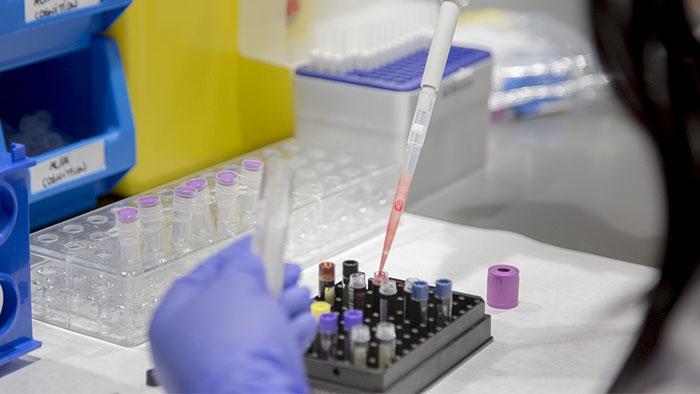07 Mar | 2019
What is the effect of biological –but not chronological– age, in Alzheimer’s disease?

Biological age and Alzheimer's disease
A team of scientists from the Barcelonaβeta Brain Research Center (BBRC), the research center of the Pasqual Maragall Foundation, will start an innovative study to determine whether biological age affects cognitive and brain characteristics associated with Alzheimer’s disease risk. The study will be funded with nearly 150,000 dollars by the Alzheimer’s Association for the next 3 years.
Everyone has a chronological age, which is determined by the day that you were born, and a biological age that can be estimated using different biomarkers. Both ages can coincide or not. One of these biomarkers can be measured by a specific blood analysis aimed to determine the length of telomeres, which are repetitive DNA sequences at the ends of chromosomes that prevent the loss of genomic DNA protecting their physical integrity, among other functions.
As we get older, telomeres get shorter. However, the rate of loss associated with aging differs from each person and is caused by different factors. This fact could explain, among other causes, why two individuals who were born in the same year may look younger or older than the other one. “We know that shorter telomeres are associated with decreased life expectancy and increased risk of chronic diseases related to age, including Alzheimer’s disease, in which age is the main risk factor”, says Dr Marta Crous-Bou, principal investigator of the study. Nonetheless, few studies have evaluated the association between the impact that telomeres might have on cognition and brain structure of people who may be at risk of developing the disease.
Over 2,000 participants of the Alfa Study will take part in the study
Researchers from the BBRC’s Alzheimer’s Prevention Program, led by Dr José Luis Molinuevo, will determine the biological age of more than 2,000 cognitively unimpaired participants from the Alfa Study, funded by “la Caixa”. The aim of the study is to analyze the association between telomere length, brain structure and function, and biomarkers of Alzheimer’s disease, such as the presence of beta amyloid in the cerebrospinal fluid or proaging and proyouthful blood factors. BBRC researchers have at their disposal part of this data thanks to the exhaustive clinical, neuroimaging and cognitive tests that the participants of the Alfa Study have done since 2012.
According to Dr Crous-Bou, “we will provide very relevant information about the possible impact of telomeres length in the cognitive and cerebral changes that are associated with a higher risk of developing Alzheimer’s disease. This knowledge will allow us to carry out Alzheimer’s prevention strategies as well as policies for promoting healthy aging, taking into account all the factors that influence the length of telomeres and, thus, the biological age”.
The Alzheimer's Association is one of the international entities that give more support for research against Alzheimer's disease. In addition to funding this new project on telomeres at BBRC, it is also currently funding the TRIBEKA consortium, promoted by the BBRC and the University of Edinburgh, and a new multimodal intervention project for the prevention of Alzheimer's disease that will start in the coming months, led by BBRC and the Hospital del Mar in Barcelona.











